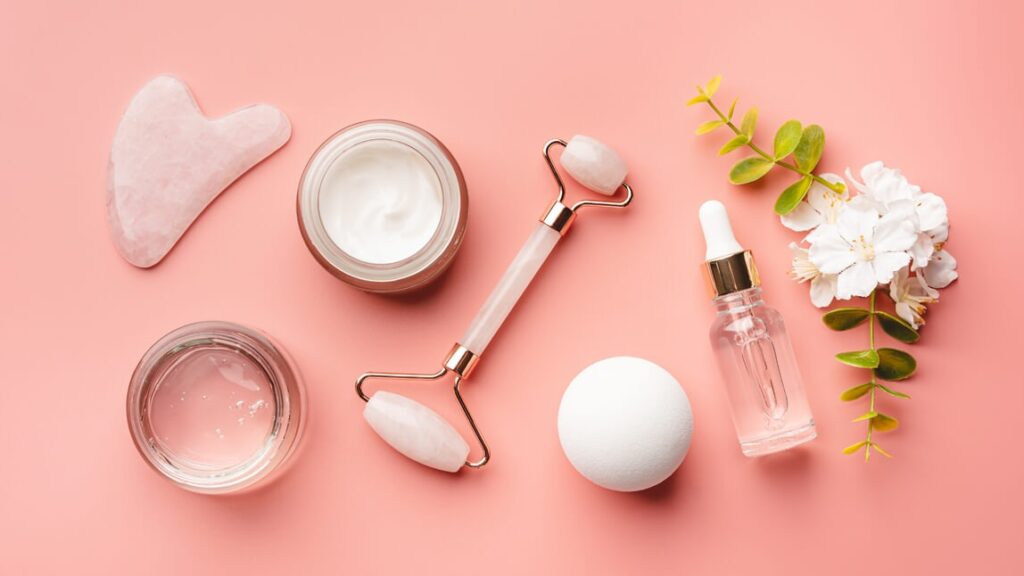Introduction to Skin Care: The Foundation of a Radiant Complexion
Skin care is a commitment to preserving the health and beauty of your skin, not merely a habit. With countless products and ever-evolving advice, navigating the world of skin care can be overwhelming. However, understanding the basics of skin care and finding what works best for you can lead to a glowing complexion and improved skin health. This guide aims to simplify the process by offering essential tips, recommended routines, and product suggestions.
Understanding Your Skin Type
The first step in any effective skin care regimen is identifying your skin type. Whether you have oily, dry, combination, or sensitive skin, knowing your type helps you choose the right products and avoid common mistakes.
For those with oily skin, look for products that control excess sebum production without stripping your skin of moisture. Dry skin benefits from richer, hydrating formulas that lock in moisture and create a protective barrier.Combination skin typically calls for a well-rounded strategy that incorporates items for both dry and oily regions.. Sensitive skin needs gentle, hypoallergenic products that minimize irritation and redness.

Building an Effective Skin Care Routine
Creating a Skin Nourishment routine tailored to your skin type is crucial for achieving the best results.Sunscreen, toning, moisturizing, and cleansing are usually steps in a basic routine. Here’s a breakdown of each step:
Cleansing
By cleaning your skin, you can avoid breakouts and congested pores by getting rid of debris, oil, and makeup. Apply a mild cleanser that is appropriate for your skin type.. For instance, foaming cleansers work well for oily skin, while cream-based cleansers are ideal for dry skin.
Toning
By balancing the pH levels of your skin, toning aids improve the way other products absorb into it. Select a toner that goes well with your skin tone.. Alcohol-free formulas are recommended for sensitive or dry skin.
Moisturizing
No matter what type of skin you have, moisturizing is necessary to stay hydrated.. Light, non-comedogenic moisturizers are best for oily skin, while richer creams are suitable for dry skin. Choose a moisturizer that is balanced and hydrates your skin without making it overly oily if you have combination skin.
Sunscreen
Daily sunscreen application is crucial to protect your skin from harmful UV rays. Use a broad-spectrum SPF of at least 30 and apply it every morning, even on cloudy days.
Additional Steps for Enhanced Skin Care
While the basic routine forms the foundation of skin care, adding extra steps can address specific concerns and enhance results. Consider incorporating the following:
Exfoliation
Exfoliating removes dead skin cells, revealing a smoother and more radiant complexion. Use exfoliants 1-2 times a week, depending on your skin’s sensitivity. Opt for chemical exfoliants like alpha hydroxy acids (AHAs) or beta hydroxy acids (BHAs) for a more thorough exfoliation compared to physical scrubs.
Serums
Concentrated active chemicals in serums address certain problems like dehydration, dark spots, and fine wrinkles.. For instance, vitamin C serums can brighten the skin and reduce dark spots, while hyaluronic acid serums provide deep hydration.
Face Masks
Including face masks in your routine can help you receive certain treatments.. Clay masks are beneficial for oily or acne-prone skin, while hydrating masks work wonders for dry or sensitive skin.

Choosing the Right Skin Care Products
Selecting the right products is key to an effective Skin therapy routine. The following advice can help you make wise decisions:
Check Ingredients
Look for products with proven ingredients that address your skin concerns. For instance, retinol is known for its anti-aging benefits, while niacinamide can improve skin tone and texture.
Avoid Harsh Chemicals
Steer clear of products with high concentrations of alcohol, artificial fragrances, or parabens, which can irritate the skin or cause allergic reactions.
Patch Test
Before using a new product, perform a patch test to ensure it doesn’t cause adverse reactions.To check if there is any irritation, apply a small amount to a discrete region and wait 24 to 48 hours.
Adapting Your Routine to Seasonal Changes
Your skin care needs may vary with the seasons. In the summer, focus on lightweight, oil-free products and increased sun protection. During winter, incorporate more hydrating and moisturizing products to combat dryness and maintain skin’s elasticity.
Maintaining Healthy Skin Habits
In addition to using the right products, adopting healthy skin habits is essential. Drink plenty of water to stay hydrated, maintain a balanced diet rich in fruits and vegetables, and avoid smoking and excessive alcohol consumption. Regular exercise also improves blood circulation, which benefits your skin’s appearance and overall health.
Conclusion: Your Path to Beautiful Skin
Effective skin care is a journey that involves understanding your skin, choosing the right products, and maintaining consistent routines. By identifying your skin type, following a personalized regimen, and incorporating additional steps as needed, you can achieve a radiant and healthy complexion. Remember, patience and consistency are key—beautiful skin is a result of dedicated care and mindful choices. With the right approach, you can enjoy the benefits of glowing, well-nourished skin every day.









